The broadsides lit up the night, allowing Mac to see what appeared to be two dozen speedboats dashing in and out. Most were little more than glorified speedboats armed with machine guns. But there were some larger craft as well, one of which mounted a minigun, and Mac had to duck as 7.62mm rounds clanged, banged, and buzzed all around her. Someone screamed, and someone else yelled, “Medic! We need a medic over here!”
Under normal circumstances, the swarm-style attack would have been successful. But the massed firepower provided by the Strykers was too much for the thin-skinned pleasure boats. Those that could fled downstream, with the Riverines in hot pursuit. Mac called them back, fearful that an ambush could be waiting.
It was about 0430 by then, and Mac kept her troops at their battle stations until the sun rose, and it seemed safe to let half of them stand down. Then she went down to inspect Lasser’s boat. It had taken a lot of small-arms fire, but the ballistic armor had done its job, and none of the sailors had been hit.
As the boat circled the flotilla, a great deal of damage was revealed. Foley’s pusher boat was all shot up, and the spud barge’s crane was blackened where a rocket had struck it, but it was the Mississippi that had suffered the most. Not only was she the most important target, she was the biggest target as well. Her formerly pristine superstructure was peppered with thousands of holes, shattered planks marked the spot where a rocket had punched through the radio shack, and a blood-splashed pontoon boat was still moored alongside. It was filled with the bodies of the would-be boarders the Riverines had slaughtered.
As for the rest of the badly-shot-up assault boats, the current had taken them downstream, where they would serve as a potent warning to anyone with plans to attack Flotilla 4. Was that it then? Would they be allowed to reach Vicksburg without further combat? Sure, Mac thought to herself. When pigs fly.
NEW ORLEANS, LOUISIANA
The apartment was located in the basement of an old building in the French Quarter. Victoria was seated at a card table. And as she stared at a news feed, she could hear the muted thump of a bomb exploding nearby. The lights flickered, and chips of green paint drifted down from the ceiling to settle around her. Victoria was deeply disappointed. A decisive sea battle had been fought and lost. And no wonder, Victoria thought to herself, since their ships outnumbered ours two to one.
She knew that the numerical advantage stemmed from a number of things, including the fact that most of the navy’s ships had been moored in Union-controlled ports on the day war was declared. Just as most of the army was stationed in the South.
It was more complicated than that, of course, since some military personnel fled from the North to the South, and vice versa, depending on their political views and cultural backgrounds. Still… there had been reason for hope, and that hope was gone.
More bombs exploded, and Victoria felt the floor shudder in sympathy. You need to concentrate, she told herself as she watched the news. You have a job to do.
Strangely enough, at least three TV stations remained on the air. Why? Their towers would make excellent targets. Because the Yankees want the stations on the air, Victoria concluded. They’re winning, and they want the locals to know that… And, once they’re in control, they’ll use the TV stations for propaganda purposes.
But Victoria was grateful regardless of the reason. Her job, which was to simultaneously flood New Orleans and blame it on the enemy, was going to depend on good timing. And thanks to the local news teams, Victoria had a reasonably good understanding of what was happening.
After defeating the Confederate fleet at sea, the Yankees had been able to close in on New Orleans quickly. The final assault began with bombing raids that were still under way. Meanwhile, the enemy used amphibious landing craft to put Marines ashore at Port Fourchon, while Riverines surged upriver, shooting anything that moved.
And as those attacks went forward, three amphibious assault ships were standing offshore, where they were launching landing craft and helicopters loaded with Marines, some of whom had already landed near Chalmette and Meraux. From there, they would be able to follow Highway 39 into the center of the city.
Victoria turned to Sergeant James Clay. He was seated at a table piled high with electronics. “Hey, Jimmy, we’re getting close. Run a check on those detonators.”
The team had been able to place about two dozen satchel charges in key locations around the city. Each case was loaded with military-grade C-4 rigged for manual or remote detonation. And by sending a “check” signal to the charges, Clay could determine if the system was working properly. “Roger that,” Clay responded as he began to type. There was a moment of silence, followed by a heartfelt, “Damn it!”
Victoria frowned. “What’s wrong?”
“The signal isn’t getting through.”
“Why?”
“There’s no way to be sure,” Clay replied. “But I think we’re being jammed.”
Victoria felt a surge of frustration. It made sense. Even though the Yankees wanted to keep the local TV stations on the air, there were lots of functions they would try to suppress—voice communications and targeting systems being excellent examples. And all they would need to do the job was some properly equipped jammer drones. She stood. “Stay here, monitor the news, and be ready to come if I call for you.”
Sergeant Radic had been lounging on the beat-up couch. Now he was up and on his feet. There was a look of concern on his face. “What about you?”
“I’m going to arm those charges manually,” Victoria told him. “Then I’ll come back, and we’ll celebrate with a cold beer.”
“No offense, ma’am, but that’s bullshit,” Clay put in. “All of us should go.”
“Thanks,” Victoria said, “but no thanks. My bike is the fastest way to get through clogged streets. And one person will attract far less attention than three would. You have your orders… Carry them out.”
Victoria left her pack behind, knowing the team would take care of it for her. All she needed was her helmet, a jacket, and a pair of boots. A flight of well-worn stairs took her up to the ground level, where a shabby door opened onto a stinking alley. It was dark, but a flash of light lit the city as a bomb exploded, and the ground trembled.
Thanks to the length of heavy-duty chain that connected the BMW to an overloaded Dumpster, the bike was still there. Victoria hurried to free it, and the chain went into a pannier. Then she threw a leg over the seat, turned the key, and heard a satisfying roar.
Victoria didn’t need a map because she’d been present as each charge was placed. The plan was to blow key pumping stations first. Then she would turn her attention to certain floodwalls. An extraordinary amount of rain had fallen since the meteor impacts, which meant that Lake Pontchartrain was higher than it should have been. So once the walls went down, and without enough pumps to counteract it, water would flow in. Lots of water. Victoria smiled as she put the BMW into gear and took off.
There were twenty-five main pumping stations in New Orleans, and Victoria hoped to blow ten or twelve of them, knowing that destroying them all would be next to impossible given the situation. As Victoria turned onto a main street, she found herself surrounded by panicked refugees. An aid unit was trapped in the fleshy tide, a frustrated police officer was shouting orders, and a street vendor was selling popcorn.
And the chaos was good from Victoria’s perspective because she’d be free to make her rounds. The explosives were concealed inside the ubiquitous metal service boxes that belonged to the power company. The C-4 was contained in locked cases. Each one was marked AUTHORIZED PERSONNEL ONLY and bore a toll-free number that would channel callers into an office at Fort Hood.
Читать дальше
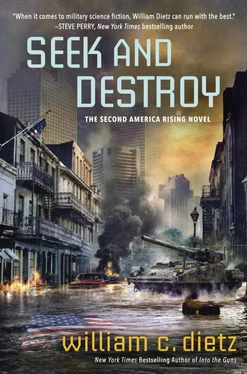
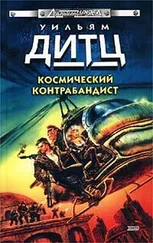
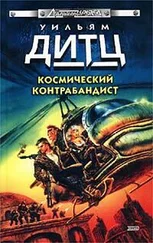
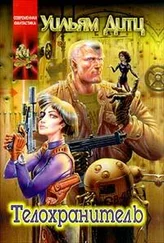
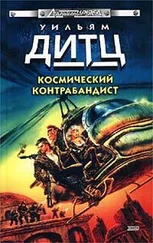
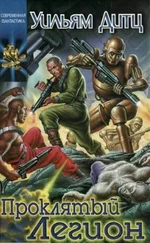
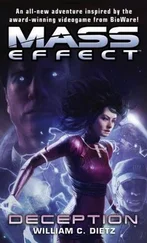


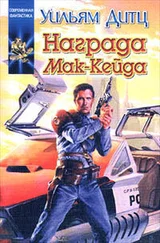
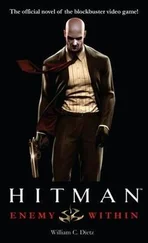
![Уильям Дитц - Избранные произведения в одном томе [Компиляция]](/books/389750/uilyam-ditc-izbrannye-proizvedeniya-v-odnom-tome-k-thumb.webp)
